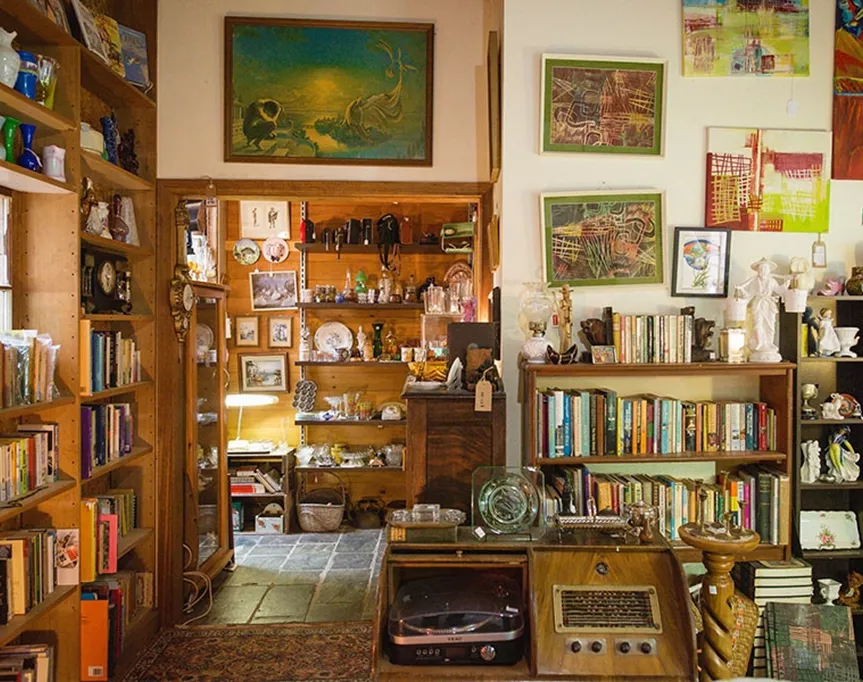word from the wise: how to get started writing that book with brodie lancaster
Enough with the procrastination – wordsmith Brodie Lancaster explains how to crack into writing that book you’ve been dreaming about.
Have you had an idea for a book brewing in your head for months, but when it comes time to put pen to paper (or fingers to keyboard) you remember that you left the oven on, or have to walk the dog, or must go and clean out your wardrobe? Put an end to the procrastination thanks to some words of inspiration from Brodie Lancaster, author of No Way! Okay, Fine – a memoir about pop culture, pop music, feminism and feelings – and film zine Filmme Fatales.

How did you begin your career in the publishing industry? An internship in my final year of university turned into my first publishing job, editing a culture website in Melbourne and then in New York City. When I moved back to Australia, I started making a zine called Filmme Fatales about women and cinema. That lead to offers to write for different websites and magazines and, eventually, my book.
What inspired you to write a memoir? I’d been writing memoir-style pieces for websites like Rookie when I spoke to a publisher about possibly expanding them into something longer. But I was just as interested in writing about pop culture and feminism as I was in writing about myself, so I merged the two in my book, using my specific personal experiences to talk about the world more broadly.
Is there anything to consider before diving head first into writing a book? There’s a lot to consider! I’m a planner, and I mapped a lot of ideas, references, quotes and themes out before I started writing each chapter. I also read a lot of other essay collections and memoirs by women to ensure I wasn’t re-treading the same ground and had something new to say.
Do you think good writing can be taught or is it something you’re born with? I’m not quite convinced of either! I never studied writing or editing, and feel like I’ve learned by doing and reading. Even if you’re born with an innate ability, I truly think that only working at writing – doing a lot of it, being self-critical and wanting to improve – can make you better at it.
How long does the process of writing a book take – from having the idea to writing the words to pitching to publishers? It’s different for everybody! My experience was kind of unusual – I entered a prize that Hachette ran in 2015, made the shortlist and didn’t win. A publisher there then took my application to an acquisitions meeting, had me refine my outline and Hachette bought it. I signed the contract in December 2015, started writing on January 1st and submitted the manuscript on August 28th 2016. I did a structural edit and a copy edit, then did a final read-through on April 25th, 2017. The book was on sale at Sydney Writers Festival in May, then was officially released everywhere on June 27th, 2017. Eighteen months sounds like a long time, but it went by pretty quickly!
What are some of the challenges of writing a book? I can only speak for my book, but the two biggest challenges were 1) questioning whether anyone would care about the minutiae of my life, and 2) finding the time to do it. I kept working a full-time job and freelancing while writing the book, and spent one day a week doing as much as I possibly could. I would’ve loved more time and flexibility to think and refine, but in some ways the pressure of a deadline worked for me.
And the best part? Getting feedback from friends along the way who were excited to read it, and finally getting it out in the world and realising there are pieces of what I wrote that connect in such different ways to so many different people.
What kept you motivated through the book writing process? Deadlines. I was used to writing article-length pieces for websites and magazines, and having to turn them around quickly has always been a motivator for me. Writing a book-length project was really tricky because it felt for a long time like one big lump of work. My friend Madeleine, who runs the project ‘Extraordinary Routines’ and is a big believer in creating productive and motivating habits, offered to be my Human Deadline. That meant I had to send her pages every week – sometimes to ask for advice, other times just to prove I’d made progress. Having her email me to say, “I haven’t seen any new work in a while!” was really what I needed to get out of a rut.
How would you recommend new writers tackle procrastination? I’m a pretty big procrastinator – I don’t think I’ve baked as much in my entire life as I did during the final five months of writing my manuscript. I think it takes a really clear head to work well, so trying not to feel guilty for stepping away from the computer to do something else for a little while is really important.
What can a new writer do to develop their writing chops? Work at it! I never studied or read The Books You’re Supposed to Read, but I did it a lot. At first it was bad – and I knew it was bad – but I did it more and more and eventually it got less bad. I think young writers sometimes feel like there’s a singular “right way” to be a writer, but in reality the only thing you need to do is write.
To see more from Brodie, pop past her website. To nab a copy of No Way! Okay, Fine swing over this-a-way.















.jpg&q=80&w=316&c=1&s=1)













.jpg&q=80&w=316&c=1&s=1)










